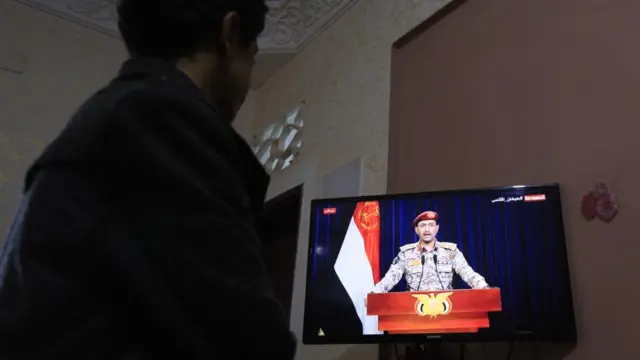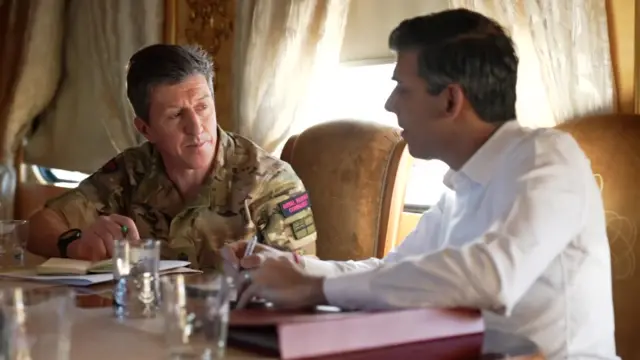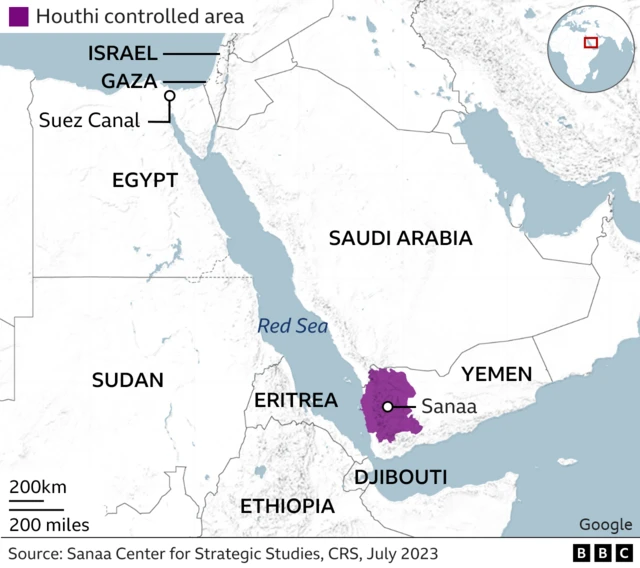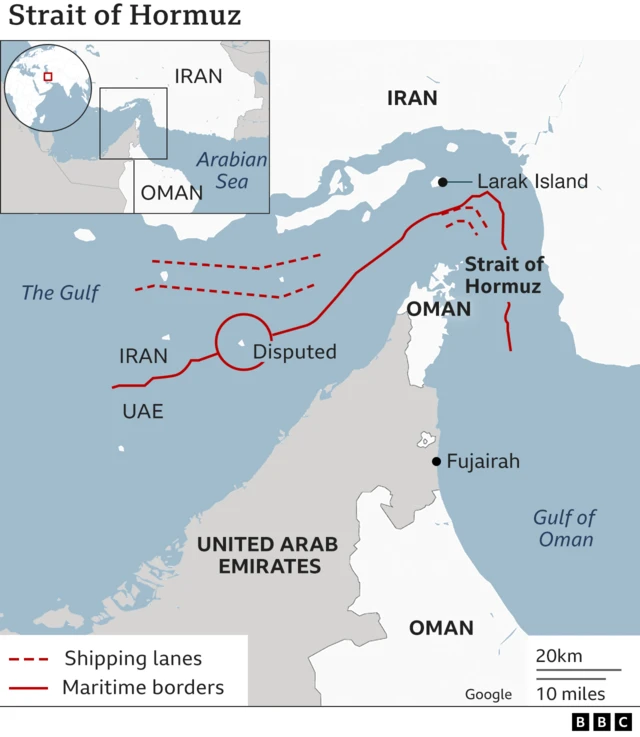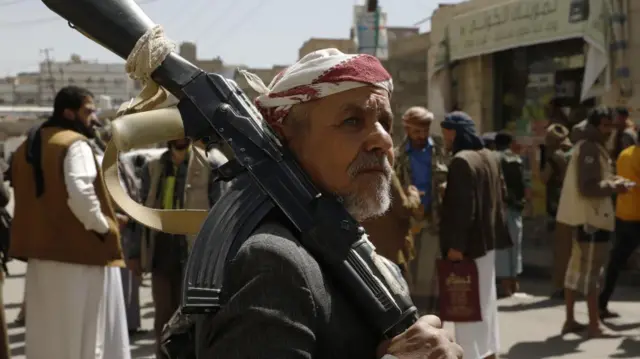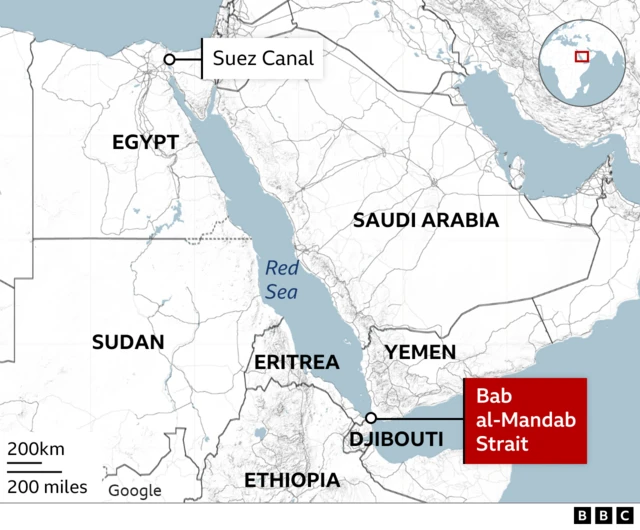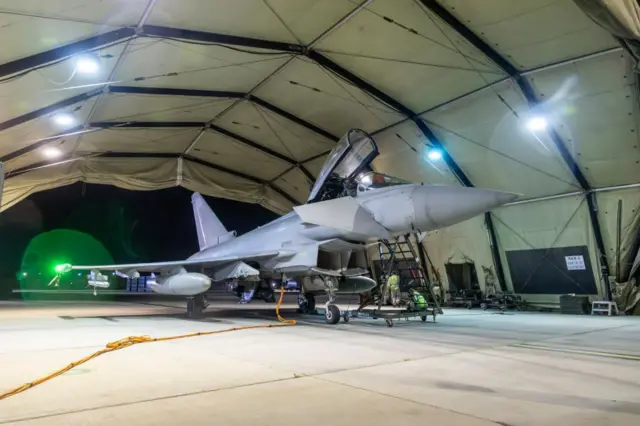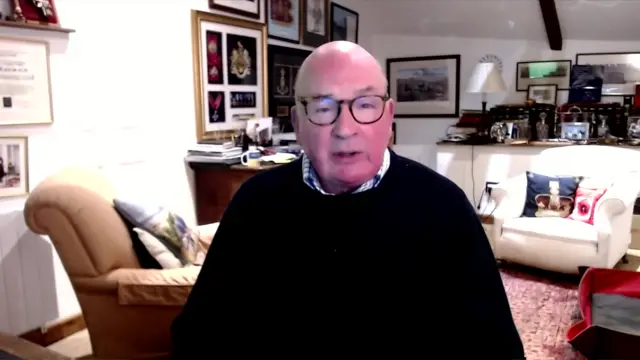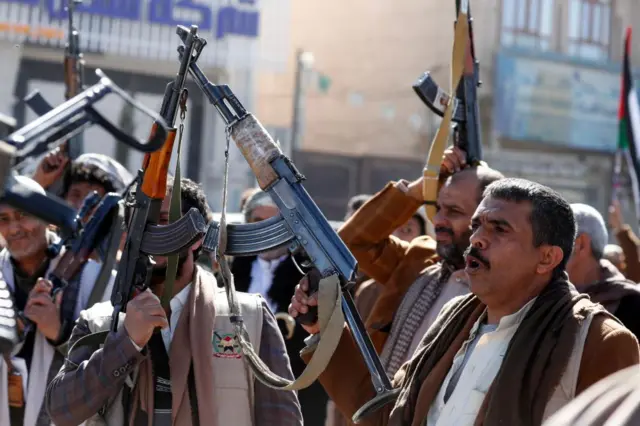Shipping firms welcome measures to improve Red Sea securitypublished at 10:39 GMT 12 January 2024
Shipping firms are responding to strikes by UK and US aircraft on Houthi positions.
A spokesperson for the German company Hapag Lloyd says they "welcome measures that make the passage through the Red Sea safe again", according to Reuters.
Danish shipping giant Maersk says it hopes increased security will lead to maritime commerce to transit through the Red Sea again, quoted by Reuters.
Earlier, Maersk told the BBC that "significant disruption" to global trade was already being felt "down to the end consumer".
Prior to the military strikes, Maersk chief executive Vincent Clerc had called for a "stronger mobilisation" to repel the attacks, which he said would lead to higher prices for customers.
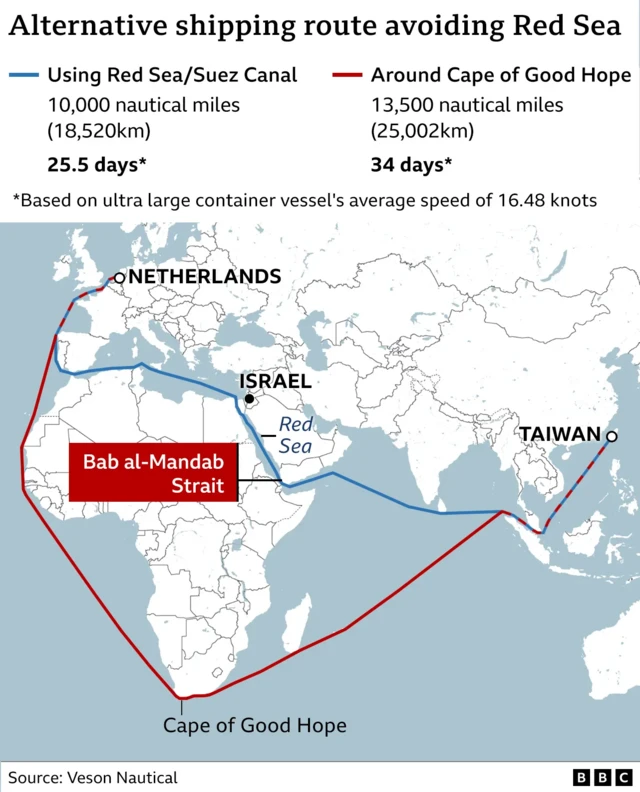 Image source, .
Image source, .